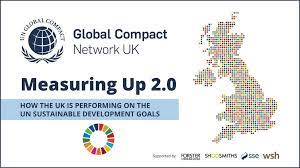The Importance of UN Development Goals
The United Nations Development Goals, also known as the Sustainable Development Goals (SDGs), are a set of 17 global objectives aimed at addressing various social, economic, and environmental challenges facing the world today. Adopted by all UN member states in 2015, these goals provide a blueprint for a more sustainable and equitable future for all.
Key Objectives of the UN Development Goals
Each of the 17 UN Development Goals targets specific areas such as poverty eradication, quality education, gender equality, climate action, and sustainable cities. By focusing on these key areas, the goals seek to promote prosperity while protecting the planet.
Impact of UN Development Goals
The implementation of the UN Development Goals has led to significant progress in many countries around the world. From improved access to education and healthcare to reduced poverty rates and increased gender equality, the goals have played a crucial role in advancing global development efforts.
Challenges Ahead
Despite the progress made so far, there are still many challenges that remain. Issues such as climate change, inequality, and conflict continue to hinder efforts to achieve the goals by 2030. It is essential for governments, organisations, and individuals to work together to overcome these obstacles and ensure a more sustainable future for all.
Call to Action
As we strive towards achieving the UN Development Goals by 2030, it is crucial for everyone to play their part. Whether through advocacy, policy changes, or individual actions, we can all contribute to building a better world that is inclusive, sustainable, and prosperous for generations to come.
6 Essential Tips for Engaging with the UN Sustainable Development Goals
- Familiarise yourself with the 17 UN Sustainable Development Goals (SDGs).
- Understand the interconnectedness of the SDGs and how progress in one goal can impact others.
- Take action at a local level to contribute towards achieving the SDGs.
- Advocate for policies that align with the SDGs and promote sustainable development.
- Educate others about the importance of sustainable development and the SDGs.
- Monitor progress towards the SDGs and hold governments and organisations accountable for their commitments.
Familiarise yourself with the 17 UN Sustainable Development Goals (SDGs).
To effectively contribute to the global efforts towards sustainable development, it is essential to familiarise yourself with the 17 UN Sustainable Development Goals (SDGs). By understanding each goal’s specific objectives, ranging from poverty alleviation to climate action and gender equality, individuals and organisations can align their actions with these targets to make a meaningful impact. Educating oneself on the SDGs serves as a crucial first step in driving positive change and working towards a more sustainable and equitable future for all.
Understand the interconnectedness of the SDGs and how progress in one goal can impact others.
Understanding the interconnectedness of the Sustainable Development Goals (SDGs) is essential for effective global progress. Recognising that advancements in one goal can have ripple effects on others highlights the intricate web of social, economic, and environmental factors at play. By comprehending these interrelations, stakeholders can develop holistic strategies that address multiple goals simultaneously, maximising impact and accelerating the journey towards a more sustainable and equitable world.
Take action at a local level to contribute towards achieving the SDGs.
Taking action at a local level is a powerful way to contribute towards achieving the UN Development Goals. By getting involved in community initiatives, supporting local businesses, and advocating for sustainable practices in your area, you can make a meaningful impact on key issues such as poverty, education, and environmental conservation. Small actions at the grassroots level can have ripple effects that ultimately contribute to the global effort of building a more equitable and sustainable future for all.
Advocate for policies that align with the SDGs and promote sustainable development.
Advocating for policies that align with the Sustainable Development Goals (SDGs) and promote sustainable development is crucial in driving positive change on a global scale. By actively supporting and promoting policies that are in line with the SDGs, we can create a more sustainable future for all, addressing key issues such as poverty, inequality, climate change, and environmental degradation. Through advocacy efforts, we can influence decision-makers to prioritise sustainable development practices that will benefit current and future generations, contributing to the achievement of the SDGs by 2030.
Educate others about the importance of sustainable development and the SDGs.
It is crucial to educate others about the significance of sustainable development and the Sustainable Development Goals (SDGs). By raising awareness about these global objectives, individuals can understand their role in promoting a more sustainable future for all. Through education and advocacy, we can inspire action and collaboration towards achieving the SDGs by 2030, creating a world that is equitable, environmentally conscious, and prosperous for generations to come.
Monitor progress towards the SDGs and hold governments and organisations accountable for their commitments.
Monitoring progress towards the Sustainable Development Goals (SDGs) is crucial in ensuring that governments and organisations stay accountable for their commitments. By tracking and evaluating the implementation of the SDGs, we can identify areas that require more attention and resources, as well as celebrate successes. Holding stakeholders accountable for their promises helps drive action and transparency, ultimately leading to more effective and sustainable development outcomes that benefit communities worldwide.

